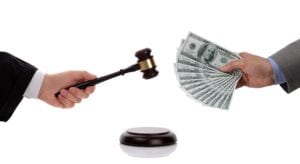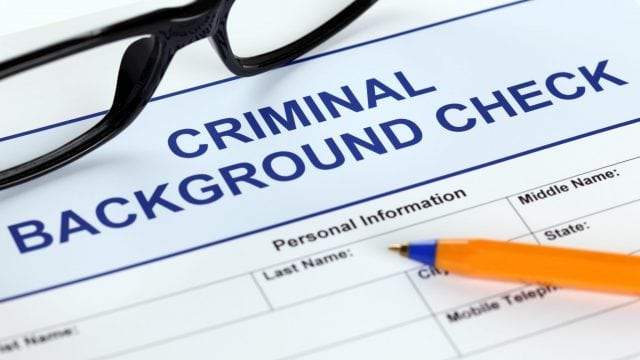 If you are interested in expunging your criminal record but you still owe fines to the court, you may be wondering whether you are even eligible to apply for expungement in New Jersey. In New Jersey, there are different time requirements that must be satisfied before an individual can apply to have their record expunged. For example, if you are trying to expunge a municipal ordinance violation, you must wait two years before applying to expunge your record. If you are seeking to expunge a disorderly persons offense, on the other hand, you must wait five years before expunging your record, while if you are trying to expunge a felony conviction you must wait ten years to apply for eligible.
If you are interested in expunging your criminal record but you still owe fines to the court, you may be wondering whether you are even eligible to apply for expungement in New Jersey. In New Jersey, there are different time requirements that must be satisfied before an individual can apply to have their record expunged. For example, if you are trying to expunge a municipal ordinance violation, you must wait two years before applying to expunge your record. If you are seeking to expunge a disorderly persons offense, on the other hand, you must wait five years before expunging your record, while if you are trying to expunge a felony conviction you must wait ten years to apply for eligible.
The problem faced by those who either paid off their fines late or who still owe a balance is that the relevant time periods have never technically started to run. According to the New Jersey expungement statutes, the applicable waiting period begins to run on the date the individual either is convicted of the offense, pays off the court fine, satisfactorily completes probation, or is released from incarceration — whichever is later. Thus, even if you were convicted of the offense more than 10 years ago, if your fine has not yet been paid in full, the applicable time period has not technically started to run in your case.
This can be particularly frustrating for those individuals who could not afford to pay the fine, completely forgot about the fine, or mistakenly believed that the fine had been paid in full. Perhaps recognizing the unfair results that can be yielded in cases dealing with the payment of court fines or restitution under certain circumstances, however, the New Jersey expungement statutes do contain an exception to the general rule when it comes to payment of court fines.
These exceptions are located at N.J.S.A. 2C:52-2(a)(1), dealing with indictable (felony) offenses, and N.J.S.A. 2C:52-3(b)(1), dealing with disorderly persons offenses and petty disorderly persons offenses. Unfortunately, there is currently no statutory exception applicable to municipal ordinance offenses. Thus, the two-year waiting period for municipal ordinance violations will start to run on the date the individual is convicted of the municipal ordinance violation or pays off the court fine – whichever is later – no exceptions.
The exceptions discussed above that are applicable to felony convictions and convictions for petty disorderly persons and disorderly persons offenses provide that a court may nonetheless grant an expungement application in those cases where either the five year waiting period (for disorderly persons offenses) or the ten year waiting period (for felony offenses ) has otherwise been satisfied and the court finds:
That the person substantially complied with any payment plan ordered pursuant to N.J.S.2C:46-1 et seq., or could not do so due to compelling circumstances affecting his ability to satisfy the fine . . . ..
Thus, this exception allows those individuals who, due to financial conditions or for other reasons beyond their control, could not satisfy the court fine in a timely manner so long as they can demonstrate that they either: 1) substantially complied with the payment plan; or 2) could not do so due to compelling circumstances.
Court Fines vs. Restitution
Court fines and restitution are often confused and the terms are sometimes used interchangeably. They are not the same thing, however. Court fines are paid directly to the state or local government. They are ordered as a form of punishment for the offense committed.
Restitution, however, is money that the defendant is ordered by the court to pay to the victim. Restitution is ordered in an attempt to make the victim whole again and is usually ordered in cases involving theft or fraud with the defendant being ordered provide monetary compensation to the victim to replace stolen or damaged property.
For purposes of this blog post, we have focused solely on the payment of court fines, as opposed to restitution. If you still owe restitution and are wondering what effect that will have on your expungement eligibility, please see our blog post on Restitution and Expungement Eligibility.
New Jersey Expungement Lawyers – $895.00 Expungements
If you have not finished paying off your court fines in full, do not give up. Speak with the experienced New Jersey expungement lawyers at Katherine O’Brien Law today for a free case evaluation. Our New Jersey expungement lawyers have successfully represented many clients in arguing that they either substantially complied with their payment plan or could not do so due to compelling circumstances – saving them years of waiting.
Low Expungement Fees
At Katherine O’Brien Law, we offer not only top-notch expungement services but our experienced lawyers are affordable. We offer all inclusive expungements starting at just $895.00. Moreover, we offer flexible payment plans and can start working on your case with just $350.00 down. If you still owe fines or paid them off late, call us now at 856-832-2482.







